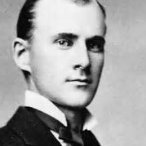Survivors Shed Light On Dark Days Of Khmer Rouge
-
Recently Browsing 0 members
- No registered users viewing this page.
Announcements
-
Topics
-
-
Popular Contributors
-
-
Latest posts...
-
198
‘Putin clearly won’: Pundits say meeting was ‘bad for Americans’
One look at no energy Trump and it was obvious no had no cards, -
11
Honestly - Ironing board ?
What a brilliant question, of course when traveling that’s one of the requirements for the hotels we use 😉 -
39
Report Putin and Trump in High-Stakes Alaska Summit Over Ukraine
That would be a significant hardening of the US's and Europe's stance. -
1,554
Updates and events in the War in Ukraine 2025
It's hard to imagine anything more touching. Big Russian “thank you” to America and to comrade Donald. Although as a leader, Donald could personally lead the way in rolling out the carpet for his friend Vlad. -
109
Putin Has Blackmail Material on Trump, claims Mussayev
You mean like if you Zelenski and had evidence of corruption related yo the Bidens? -
11
Padang Besar border 'bounce' report August 2025
A couple of weeks ago I did a 'visa run' to Phnom Penh after a VE 60+30. Flights 4k, visa 1k, and 6 nights hotel 3k. Other daily expenses like food / beer worked out cheaper than here and I also picked up a month's supply of vapes very cheaply. I did consider using, and even contacted, the most recommended 'safe entry' service on here but decided against it mainly on principle. Instead I booked an 'onward ticket' for $16 and had no problems when I came back. Suppose I should talk about the elephant in the room. When I arrived at DM the counters were exclusively staffed by female officers. Shortly after joining a queue, a male officer opened an adjacent counter so I went there instead. He simply asked me how long I was staying this time. I said 'one month' and was soon processed . I obviously included my onward flight details on the TDAC.
-
-
Popular in The Pub


.thumb.jpg.3ee24d9400fb02605ea21bc13b1bf901.jpg)








Recommended Posts
Create an account or sign in to comment
You need to be a member in order to leave a comment
Create an account
Sign up for a new account in our community. It's easy!
Register a new accountSign in
Already have an account? Sign in here.
Sign In Now